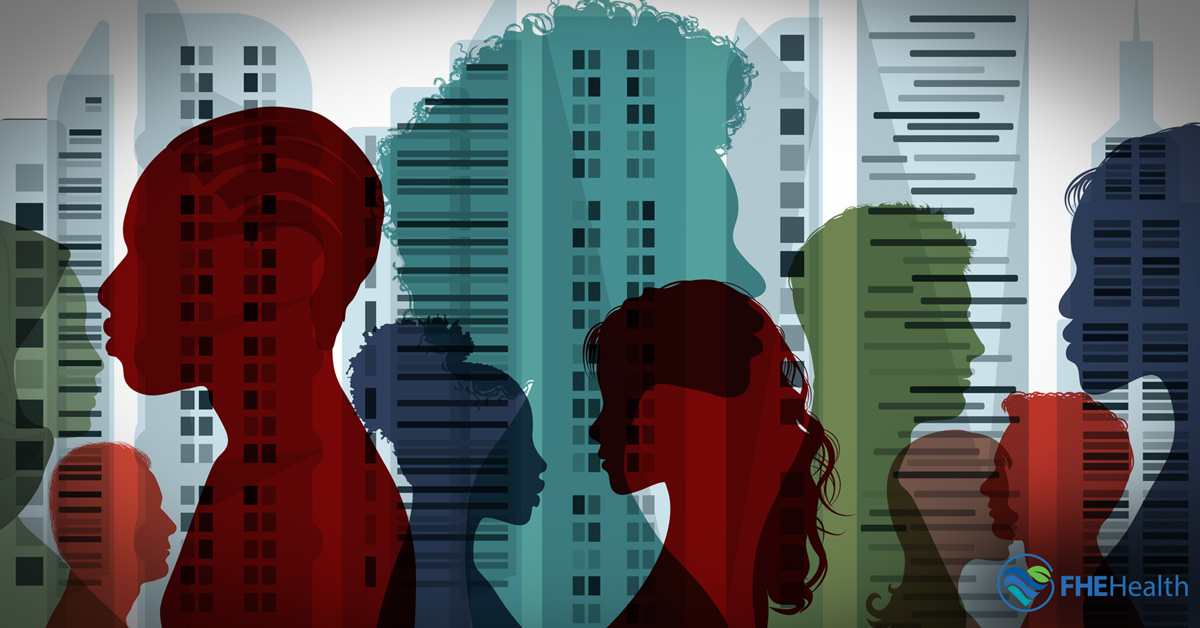
During the 2020 Tokyo Olympics, everyone expected the captain of the U.S. gymnastics team, Simone Biles, to bring home a few more gold medals. However, millions were shocked when the 24-year-old African American woman pulled out halfway into the competition, claiming she wasn’t in the right headspace to continue. Thousands took to social media to express their anger and disgust at the fact that she refused to perform her duty despite having no quantifiable injury. The young woman was called “a national embarrassment” and still experiences vicious attacks online because she decided to put her mental health first.
Simone Biles isn’t the first to face mental health stigma in minorities. While the backlash against her came from a multiracial and multiethnic mass, most people from a minority community face mental health stigma within their homes and societies. Mental health stigma in minority communities colors people’s view of mental health and impacts their willingness and ability to seek and receive mental health services.
Understanding the impact of mental health stigma in minorities is key to developing strategies for creating inclusive mental health services.
Need Help?
Treatment can begin quickly and discreetly, get started now
What are the Mental Health Challenges Faced in Minority Communities?
American minorities face various forms of stigma when pursuing quality mental health care. Institutional stigma refers to the systemic injustices in various echelons of American society that make it difficult for them to find appropriate and affordable mental care within their neighborhoods. The low number of mental health professionals who understand the unique background of a minority community and its role in their mental health struggles also discourages many minorities from seeking or continuing mental health treatment.
Public or community stigma is a barrier that occurs when individuals in a select society hold and perpetuate untrue beliefs about mental health and associated conditions. For example, some American Muslims believe mental health issues are a Western concept that doesn’t affect people from their communities.
Black Americans are likely to view mental illnesses as temporary conditions that must be endured until they pass. African Americans are also more likely to seek treatment for mental health symptoms in emergency and primary care rooms rather than from mental health specialists.
Asian Americans, including young adults, consider mental conditions less severe than physical illnesses. This minority community has the lowest rates of mental health diagnoses despite having high incidences of serious mental illnesses. Asians are also less likely to seek mental health assistance from people outside their communities, preferring to find relief for mental health symptoms from their social connections rather than mental health professionals.
Minority communities that share a religion may view mental illnesses as a sign of weak faith and ask people with mental health symptoms to pray their struggles away. For example, some Christian sects perform elaborate and abusive rituals to cast out “demons” from people experiencing symptoms of depression, mania, or psychosis.
Internalized stigma is another barrier against which minorities struggle to access mental health help. Individuals from minority communities who believe they’re different or better than other societies, such as Asians who buy into the model minority myth, may be embarrassed when they realize they struggle with mental health conditions similar to those of an outgroup. Such people may prefer to keep quiet about their mental health struggles to maintain their standing in the community.
Individuals who rely on their communities for physical, social, and other forms of support are less likely to seek mental health services due to the associated stigma, even when they don’t buy into the myths and misconceptions about mental health. This is because the shame attached to “mental weaknesses” could lead to social isolation or shunning, which affects their means of accessing shelter and sustenance.
Begin your recovery today
Ready to start? More questions about treatment?
What is the Impact of Mental Health Stigma in Minorities?
Barriers such as mental health stigma in minorities lead to negative mental health outcomes for individuals, families, and the whole community. Recent data on mental illness by race shows that suicide rates among Native Americans increased by 26% within four years. Black Americans faced a 19% increase in suicide rates, while Hispanic Americans experienced a 7% increase in such deaths.
Increased suicide rates aren’t the only adverse effects of mental health stigma in minorities. Low access to mental health services contributes to worse personal, financial, and social outcomes among minorities. For example, teenagers who can’t access mental health care may self-isolate, self-harm, or use addictive substances.
Severe mental health symptoms interfere with someone’s ability to care for themselves and others. Young people who experience debilitating mental health symptoms may drop out of school. At the same time, adults may lose their jobs or homes or even get incarcerated due to untreated mental health conditions.
Importance of Breaking Mental Health Stigma in Minority Communities?
Individuals with untreated mental illnesses experience high rates of unemployment and homelessness. They’re also likely to have chronic health conditions such as heart disease and addiction. Additionally, mental illnesses make a significant contribution to high rates of disability.
Communities with high rates of untreated mental health conditions are often poor and unsafe due to high crime rates.
Untreated mental illnesses cost the American economy over $300 billion annually since affected individuals are often economically unproductive and rely on taxpayers to cover the costs of health care and disabilities.
Therefore, understanding and removing the barriers people in a minority community face is crucial for improving health, social, and economic outcomes for individuals, communities, and American society as a whole.
Mental Health Conditions We Treat

ADD & ADHD
A disorder in which individuals display characteristics such as distraction, impulsiveness, hyperactivity and poor attention.
Learn More
Anxiety
Anxiety can be described as the constant feeling of an alarm going off when an individual feels stressed or threatened.
Learn More
Bipolar Disorder
A disorder which causes changes in an individual’s moods, energy levels and prevents the ability to handle day-to-day tasks.
Learn More
Depression
When left untreated, depression can lead to serious long-term effects, such as feelings of loneliness and thoughts of suicide.
Learn More
Eating Disorders
A condition in which an individual displays abnormal eating habits, negatively affecting their mental and physical health.
Learn More
OCD
A mental health disorder in which individuals frequently experience repetitive, obsessive thoughts and compulsive behaviors.
Learn More
Personality Disorder
A personality disorder can significantly disrupt the lives of both the affected person and those who care about that person.
Learn More
PTSD
A disorder that may develop after experiencing or witnessing something traumatic, shocking, scary, or life-threatening.
Learn More
Substance Abuse
Most individuals suffering from substance abuse disorder may want to quit using, but the urges are too strong to control.
Learn More
What are the Strategies for Change?
Education is key to breaking the stigma around mental health conditions in minority communities. When people understand that the brain can get sick just like other body parts, they’re less likely to feel shame if they need mental health services. Community members will also be free to support those struggling with their mental health in the same way they’d support people with other health conditions.
Mental health professionals should recruit and utilize mental health advocates from a minority community to dismantle the stigma around mental health. People are more likely to listen and change their minds on taboo topics if challenged by those they can relate to.
Mental health professionals interested in breaking the stigma within a minority community must be culturally competent. Professionals who understand and respect the traditions and customs of different minority groups can provide better mental health assistance to their members. Knowing how to communicate the language of mental health to community members respectfully raises the chances of bringing positive changes.
Promoting Inclusivity
Providing inclusive mental health services is another solid strategy for removing mental health stigma in minority communities. Mental health providers should have programs that cover the needs of people from different walks of life. People breaking away from stigma are more likely to seek mental health assistance if they’re confident in finding programs that acknowledge the unique nature of their problems.
FHE Health has spent years working to eradicate the stigma affecting minorities and mental health. Contact us to learn more about our specialty programs for minority groups such as women, seniors, and first responders.
More Questions about Treatment?
We offer 100% confidential and individualized treatment
About Chris Foy
Chris Foy is a content manager and webmaster for FHE Health with years of experience in the addiction treatment industry...read more






